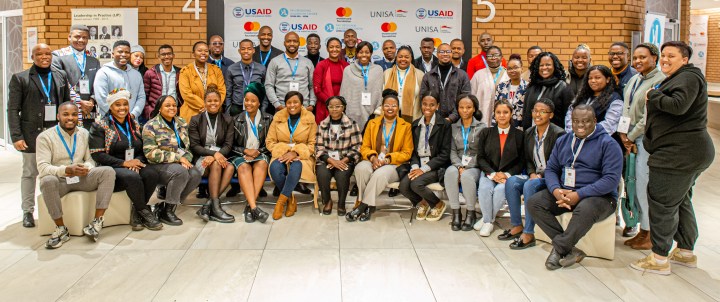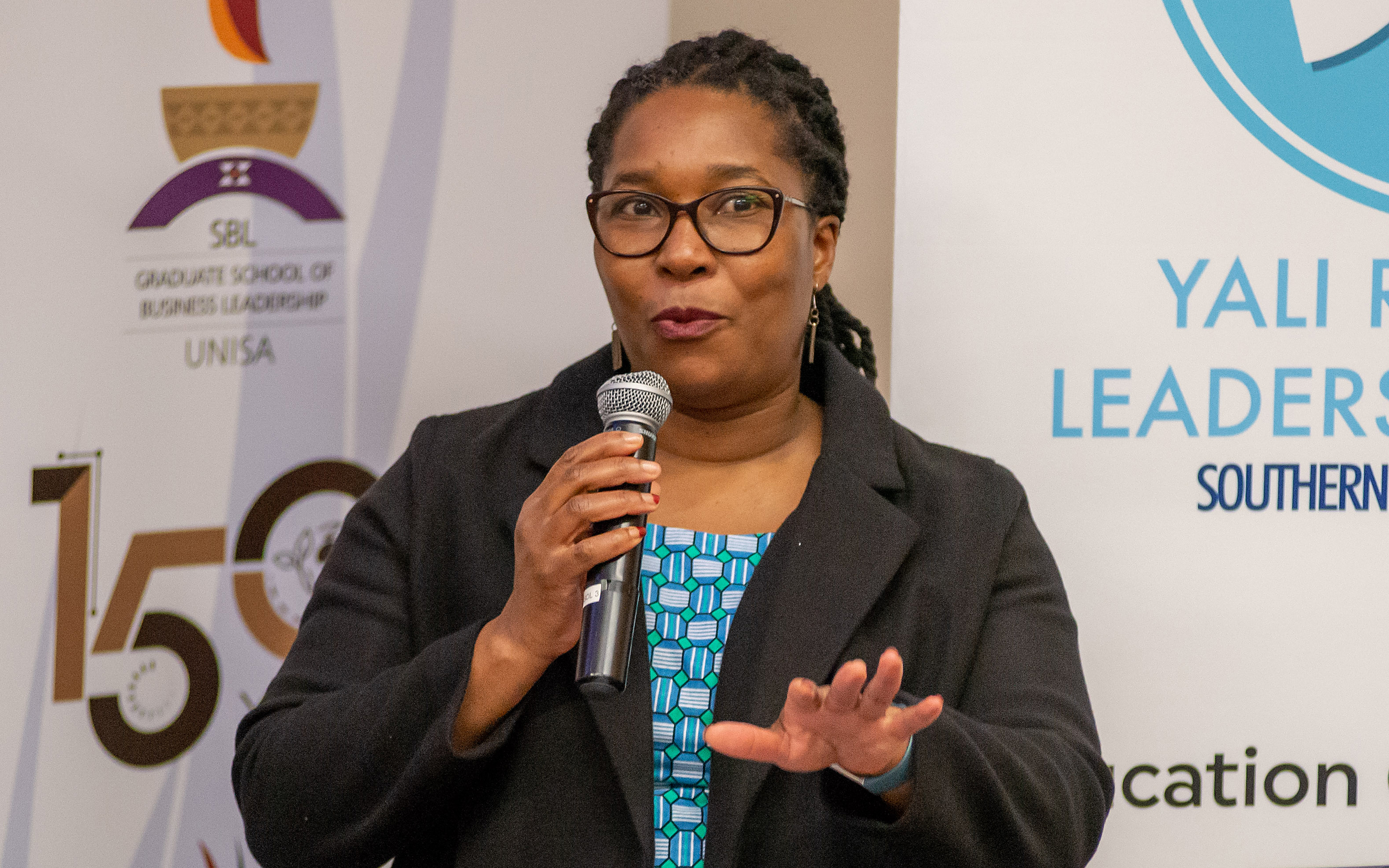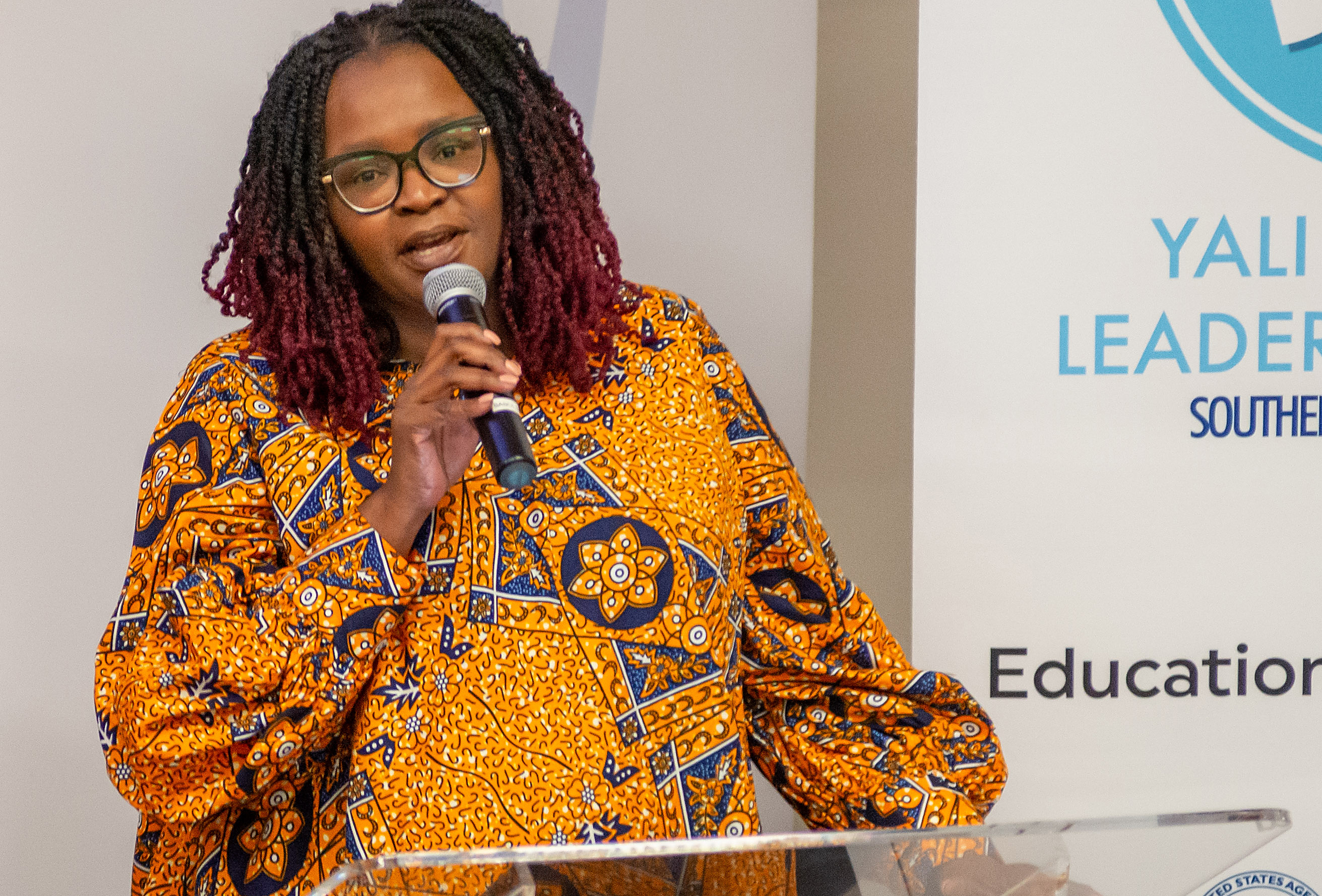EDUCATION CHANGEMAKERS
Trevor Noah Foundation plays leading role in shaping future education leaders

The Education Changemakers programme launched its third cohort on Monday, 26 June. The programme aims to produce capable and competent leaders in schools who possess adequate skills and knowledge to address the numerous challenges facing the education across the continent.
“This launch comes off the news of the release of statistics that show that a very high percentage of grade four pupils in South Africa cannot read for meaning in any language. That statistic is a very grim indictment of the education sector”.
These were the words of Aleta Musvoto, Young African Leader Initiative (Yali) regional coordinator, at The Education Changemakers (ECM) programme launch of its third cohort on Monday 26 June, at the Unisa Graduate School for Business Leadership in Midrand. The programme, in partnership with Trevor Noah Foundation (TNF), aims to equip young African leaders from the education sector with advanced skills, resources and tools for advancing the education sector.
Musvoto said that the statistics were a grim indictment of the education sector and highlighted a failure of leadership within the sector.
“I look at young people who are on the front lines of the education sector as the people who will provide me and future generations to come, with some of the solutions to these challenges,” she said.

Aleta Musvoto, Young African Leader Initiative (Yali) regional coordinator, said young people who are on the front lines of the education sector will be the ones to provide some of the solutions to the challenges facing the education sector. (Photo: Supplied)
How the programme works
The Regional Leadership Center Southern Africa (RLC-SA) implements the Yali programme with the support of the United States Agency for International Development (USaid) and the University of South Africa (Unisa). From over 1900 applicants, 50 leaders from 14 countries across Southern Africa are invited to participate in four weeks of immersive and collaborative leadership training.
Bento Marcos, head of recruitment, selection and admissions for Yali RLC-SA, said that they target specific young people who are involved in the education space, including policymakers, school teachers, principals, and people in nonprofit organisations.
“We look for young leaders or people in the space who are making contributions to their communities, who are running businesses and we also looking for young leaders, people who are emerging in the leadership space,” he said.
The application period is roughly three weeks, with applications subject to peer review from previous cohorts of leaders who were part of ECM. There is also a set of quantitative assessments and a panel interview, he said. Selection is based on different factors and achieving specific targets. This year, individuals in the educational technology space were a specific target, along with teachers who work with people with learning disabilities.
Derrick Manyisa, curriculum manager for Yali regional leadership, explained that the leaders will spend time in the classroom focused on foundational leadership skills, interactive learning, and site visits. “They work on real-life challenges, so we take them on a site visit to understand the challenges practitioners on the ground experience and use those as case studies to bring into the classroom and work out possible solutions,” he said. Teaching is done by a diverse range of facilitators ranging from practitioners to academics. At the end of the programme, the leaders will pitch their innovative ideas for improving education outcomes, he said.
Being part of the solution
“When Trevor Noah Foundation was founded five years ago, the vision was and still is to ensure inclusive and equitable access to education,” said Priscilla Morley, director of programmes at Trevor Noah Foundation (TNF). Morley acknowledged that it was a bold statement, and without concrete steps and action — this vision cannot be realised.
“We see ourselves as facilitators of change in education and we partner with organisations such as YALI, Unisa, and USAID to support the development of solutions to education challenges,” she said.
TNF also exists to ensure young people can see, dream and build their possible life.

Priscilla Morley, director of programmes at Trevor Noah Foundation said that the foundation still maintains its vision to ensure inclusive and equitable access to education. (Photo: Supplied)
“For us, seeing means youth have access to platforms for engagement, dreaming means providing them with opportunities for youth to create their own questions for education, and building means taking concrete steps to address the education challenges,” she said.
Morley noted a report from Unicef that said approximately 11 million children of primary and secondary school age in Sub-Saharan Africa are not enrolled in school.
“On the one hand, these statistics are concerning because we know the significant impact of a lack of education. On the other hand, these disturbing stats present us with an opportunity to take a stand as leaders and become part of the solution,” she said.
Alumna making a difference
Vera Mila is the founder and managing director of Studio4humanity, an illustration and animation social enterprise that produces and distributes early childhood development learning materials in Malawi. As part of the 2020 ECM cohort, Mila received a grant and business coaching from TNF to develop her Toon Notebook project. Inspired by 3D games and cartoons, the backpack-notebook combination includes activities to teach children to become independent learners, addressing the shortage of quality early childhood education learning materials.
“The Toon Notebook early childhood toolkit is a toolkit where children from less privileged backgrounds, can have the same interaction with early childhood education that their privileged counterparts are able to go through,” she said.
In Malawi, nearly every privileged child is able to attend preschool but can end up in the same secondary and high schools as those who were not privileged enough to attend preschool. The gap in knowledge between those who received quality early childhood education and those who did not is evident, Mila said. Mila grew up privileged and could attend preschool, but her family fell on hard times and she ended up going to a government school.

As part of the 2020 ECM cohort, Vera Mila received a grant from the Trevor Noah Foundation to develop The Toon Notebook, an early childhood toolkit designed to bridge the gap in quality early childhood education learning materials for those less privileged. (Photo: Supplied)
“I felt like my whole life changed from that moment when I realised I knew something others didn’t it gave me such confidence. But at the same time, I imagined what it did to other children and their self-esteem, so I told myself I am going to fix this,” she added.
Mila said young leaders are skilled at identifying problems but it should not end there. Mila encouraged young leaders to also take initiative alongside pressuring the government to implement changes, which is how she started The Toon Notebook.
“Every time you spot a problem, the universe has already put support systems around you to address that problem, so give pressure to those appointed but do it alongside your own initiative.”
A new changemaker emerging
Maggie Letseka from Lesotho is part of this year’s cohort of leaders and her initiative is based mainly on learning difficulties that learners face in classroom situations.
“In my country, we have learners who have special needs and then we have learners who have learning difficulties but who are treated like normal students in a normal classroom. They are taught the same way others are, and you find that they don’t learn the same — their needs are never addressed in a class, they are just referred to as slow learners,” she said.
At no point during their education are teachers equipped with the skills to deal with those problems.
“But then you get into a classroom situation and you come across this child struggling. You are an educator and no one ever told you that you could have a child like this, so now how do you deal with this? If you are a teacher who is not really passionate about your job, it means your children are going to suffer,” she said.

Maggie Letseka from Lesotho is part of this year’s cohort of leaders and her initiative is based mainly on learning difficulties that learners face in classroom situations. (Photo: Supplied)
Letseka explained that she equipped herself with the knowledge of how to deal with these learning difficulties and what they entail and has been sharing her knowledge with colleagues — noting there has been some progress made in helping such learners.
“I opened what is similar to a tutorial service so that in the schools where I don’t teach, those learners have somewhere to go,” she explained. “The plan is to grow it bigger and make sure that maybe we end up having branches in the entire country.”
Letseka stressed she did not want children to have limitations.
“I want them to have broad choices. To know that they can become an artist if they want to, a mathematician or an astronaut. I want them to have choices and know they can achieve anything, regardless of their learning disability,” she said. DM


















Comments - Please login in order to comment.